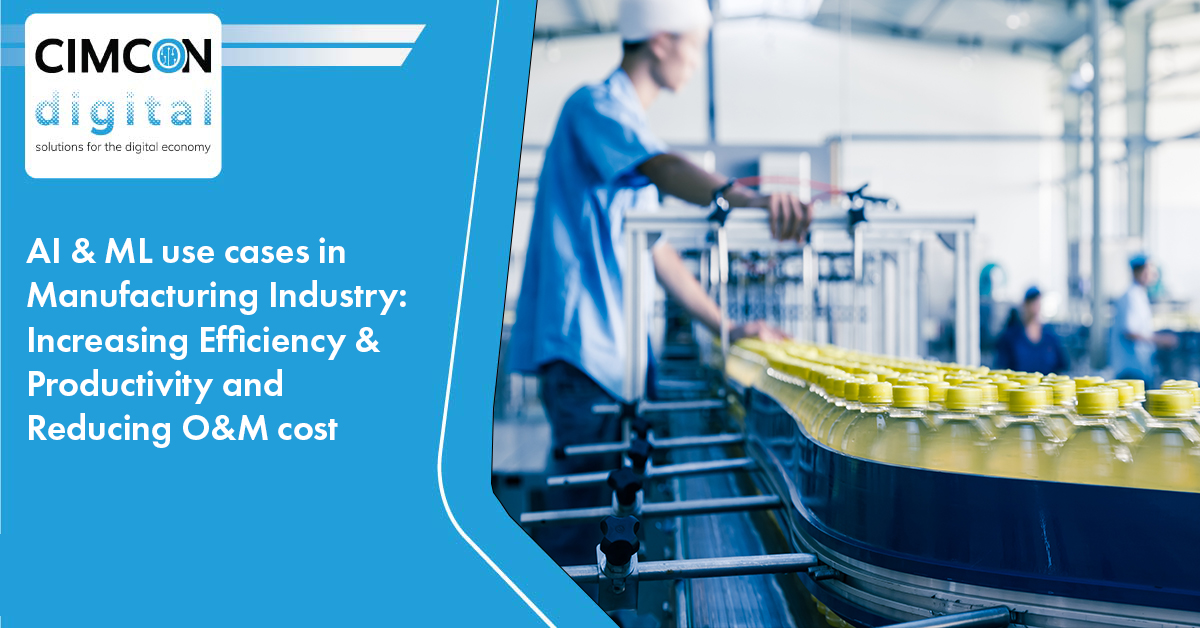Data and analytics are the two most important and critical components of Digital Transformation. Data is the new game changer and according to the latest reports, data-driven organizations are 19 times more likely to be profitable. According to Gartner, a leading technology research and consulting company, 72% of Data and Analytics leaders are heavily involved in Digital Transformation initiatives.
But considering the huge amount of data being generated, the analysis of the same becomes a difficult and hefty task. This leads to the introduction of AI & ML techniques to reduce the human effort involved and make the data analysis less tedious and time consuming.
International Data Corporation( estimates that global budgets for Artificial Intelligence will double over the next four years, to $110 billion in 2024.
“Companies will adopt AI — not just because they can, but because they must,” IDC’s AI program vice president, Ritu Jyoti noted. “AI is the technology that will help businesses to be agile, innovate, and scale.”
What is Artificial Intelligence (AI)?
According to Accenture Research, “AI is the collection of multiple technologies that allow machines to detect, understand, act and learn either on their own or to augment human activities”. They will have many of the capabilities of a human being – the ability to learn and distinguish between things. But they also have a great advantage over humans – they do not need to rest to function! The same Accenture study reveals that AI could double annual economic growth rates by 2035 by changing the nature of work and creating a new relationship between Man and Machines, increasing labor productivity by up to 40%.
What is Machine Learning (ML)?
ML uses big data to analyze and correlate patterns that can offer insights into customer behavior and other events. It provides insights on solutions to improve business processes and customer experiences. Instead of finding out about a change in customer behavior after sales have already declined, ML can help to identify shifts in behavior and events as they happen so solutions can be devised to head off a decline in sales.
Using AI and ML in planning and implementing a digital transformation puts businesses and organizations in a position to stay ahead of the curve. With AI and ML, information is analyzed in real-time to increase responsiveness to changes in customer behavior and events, and make business processes including IT operations more efficient.
So, what implications does AI bring to the Manufacturing industry?
It’s a timeless manufacturing goal: produce more, higher-quality products at minimum cost.
A manufacturing plant implemented a predictive maintenance solution for a supply chain production unit. Detailed studies of the maintenance process showed that engineers were spending far too much time attending to breakdowns instead of allocating resources for planned maintenance. The new solution enabled them to predict equipment failure, plan maintenance more effectively, and offer greater asset reliability and product quality. Overall equipment efficiency increased by 20% which lead to better machine health and reduction of unplanned downtime.
The “Smart Manufacturing” revolution is already enabling manufacturers to reach this goal more successfully than ever — and one of the core technologies driving this new wave of innovation is Industrial Artificial Intelligence.
Data has become a highly valuable resource, and it’s cheaper than ever to capture and store. Today, more manufacturers are leveraging that data to significantly improve their bottom line, thanks to Artificial Intelligence and particularly Machine Learning.
For many, this means greatly improving production efficiency and capacity, by eliminating the primary causes of production losses and other associated costs.
According to McKinsey, 50% of companies that embrace AI over the next five to seven years have the potential to double their cash flow with manufacturing leading all industries due to its heavy reliance on data.
Artificial Intelligence and Machine Learning in manufacturing can result in a significant increase in efficiencies, and help in creating new business opportunities. Today, manufacturers want to know how machine learning can help solve their specific business problems, such as tracing manufacturing defects back to specific steps in the production process, reducing waste by identifying faulty components earlier in the process, etc.
Some of the benefits of using AI/ML in the manufacturing industry are:
Workplace Safety
One of the most adopted use cases has been leveraging artificial intelligence in workplace safety. The technology has led to long-term solutions associated with workplace safety events before they happen or speeding up post-incident root cause analysis (for example, trips, and falls). These solutions lead to healthier employees, a safer workplace, and continued operations on the factory floor.
Predictive & Preventative Maintenance
Machine learning enables predictive maintenance by predicting equipment failures before they occur, scheduling timely maintenance, and reducing unnecessary downtime. Manufacturers spend far too much time fixing breakdowns instead of allocating resources for planned maintenance. Machine learning algorithms can predict equipment failure with an accuracy of 92%, allowing businesses to plan their maintenance schedules more effectively, improving asset reliability and product quality. With the power of IoT devices, sensors, and machine learning algorithms, manufacturers can utilize many machine data points to predict breakdowns. Planned Maintenance schedules can be optimized before the predicted breakdown to keep machines in top-notch condition and the production floor running smoothly. Studies show that by deploying machine learning and predictive analytics, overall equipment efficiency increased from an industry average of 65% to 85%.
Supply Chain Optimization
Today’s supply chains are super complex networks to manage, with thousands of parts and hundreds of locations. AI is becoming a necessary tool to get products from production to customer promptly. The manufacturing industry requires extensive logistics capabilities to run the entire production process. Machine learning-based solutions can automate several logistics-related tasks, boosting efficiencies and reducing costs. It is estimated that the average US business loses $171,340 each year due to manual, time-consuming tasks such as logistics and production-related paperwork. These routine tasks can be automated using machine learning and save thousands of man-hours annually. Machine learning algorithms can also be used to streamline resource management.
Predictive Yield
Yield prediction conversations always come up when AI in manufacturing is being discussed. The ROI on having a high accuracy prediction AI model is limitless. Predicting yield can better prepare supply chain and inventory management for future component needs. Knowing if yield will be lower than expected can alert production management to increase production time to meet demand needs. Yield prediction is a data-heavy complex problem that will require AI to solve.
Energy Management
AI can help the often-overlooked area of energy management. Most engineers don’t have the time to analyze the cost of factory energy consumption. Having an AI look into the energy consumption of a production operation can significantly reduce operations costs. In addition, reduced costs can allocate more funding for process improvement resources, leading to higher yield and quality.
What if there was a system where AI/ML algorithms can be used to detect machine health and predict failures in advance? CIMCON Digital with its edge platform can perform the functions and identify the machine faults in advance which increases the efficiency of the machines, thereby reducing the cost of operations and unplanned downtime.
Data is the new bacon, and AI is taking it to new heights.



Leave a Reply